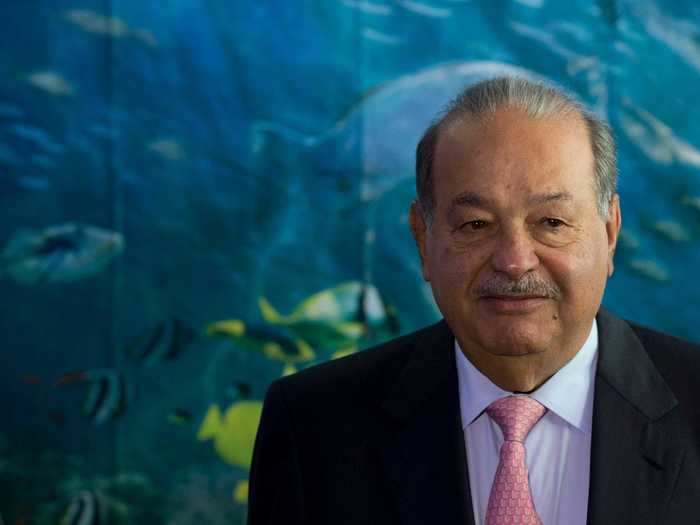Mexico's richest man lives a surprisingly frugal life for a billionaire. Take a look at the life of Carlos Slim, who owns Sears Mexico and has lived in the same house for 40 years.
Katie Warren

- Carlos Slim is the richest person in Mexico, worth an estimated $43.6 billion, according to Bloomberg's Billionaires Index.
- The 80-year-old Mexican billionaire controls America Movil, the largest mobile-phone operator in Latin America, and holds stakes in several other publicly traded companies, including The New York Times.
- Slim also owns Sears Mexico, which has been growing and opening up new stores despite the chain filing for bankruptcy in the US.
- Slim lives a surprisingly frugal lifestyle for a billionaire: He doesn't own any yachts or planes and he's lived in the same house for more than 40 years.
Carlos Slim Helu — Mexico's wealthiest man — is one of the richest self-made billionaires in the world.
Slim's influence is far-reaching in Mexico and abroad. Bloomberg estimates Slim's net worth to be at least $44 billion, but he could be worth as much as $51 billion, according to Forbes.
But, considering he's involved in hundreds of companies in Mexico, which is also known as "Slimlandia," Slim flies under the radar more than you might expect.
Despite his wealth, Slim lives a relatively frugal lifestyle; he's lived in the same six-bedroom house for more than 40 years.
Here's a look at Slim's life and massive business empire.
Christi Danner contributed to an earlier version of this article.
Carlos Slim is worth at least $43.6 billion, making him the richest person in Mexico.

He's among the 25 richest people in the world.
Bloomberg's Billionaire Index ranks him at No. 24 with an estimated net worth of $43.6 billion, while Forbes put him at No. 21 with an estimated net worth of $51 billion.
In 2016, Slim ranked as the fifth-richest person in the world, but his fortune has taken a major hit over the past few years.
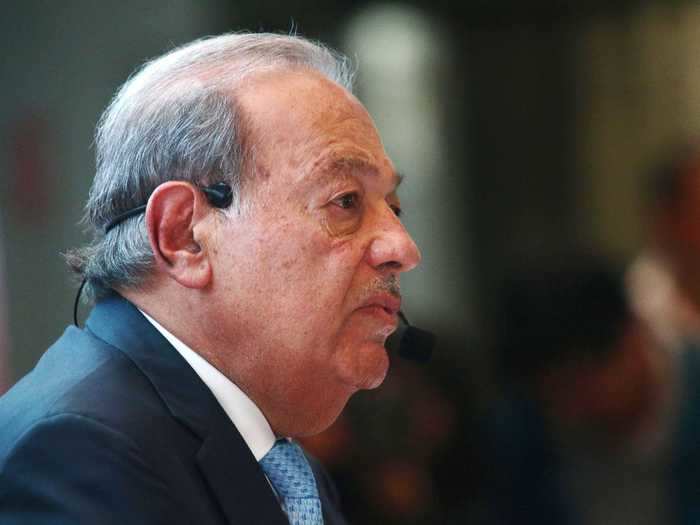
Right after Donald Trump's election in November 2016, global markets contracted and the Mexican peso's value fell to a record low, causing Slim to lose more than 9% of his wealth, according to Money magazine.
And in March 2017, Bloomberg reported that no other billionaire had lost more money than Slim during Trump's presidency, which the publication attributed partially to the president's "tough talk" on Mexico.
The coronavirus pandemic has taken yet another toll on the Mexican billionaire's wealth. In early March, he lost nearly $5 billion in a single day on "Black Monday," which was a day of major market losses due to growing global concerns about the coronavirus.
Most of Slim's wealth comes from his 57% stake in America Movil, the biggest mobile-phone operator in Latin America.

The company reported revenue of $52 billion in 2019.
He also has holdings in banking and mining, as well as interests in the construction industry in Mexico.

These interests are controlled through the family business: infrastructure, construction, and energy conglomerate Grupo Carso.
Slim's son, Carlos Slim Domit, is now chairman of the board at Grupo Carso.

Source: Bloomberg
Slim holds stakes in several other publicly traded companies, including CaixaBank and The New York Times.

Bloomberg estimates that Slim has raked in nearly $10 billion in dividends from his investments.
Slim was born to Lebanese immigrant parents in Mexico City in 1940.
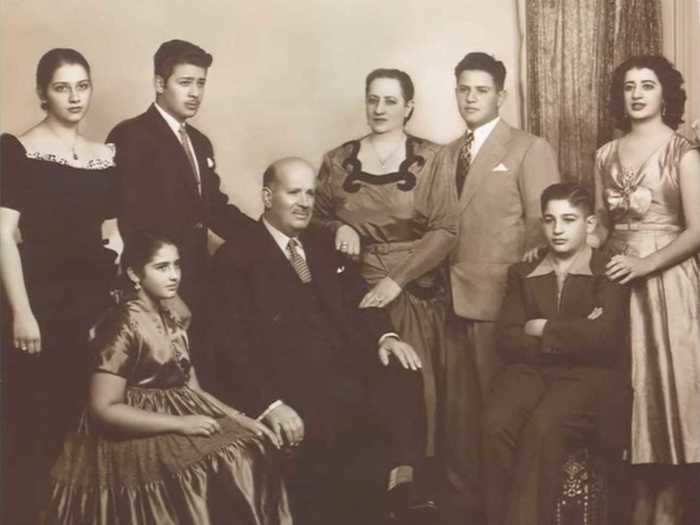
His father taught him to read financial documents and invest at a young age.
Slim's father was successful in both retail and real estate, and Carlos inherited his business after his death in 1953.
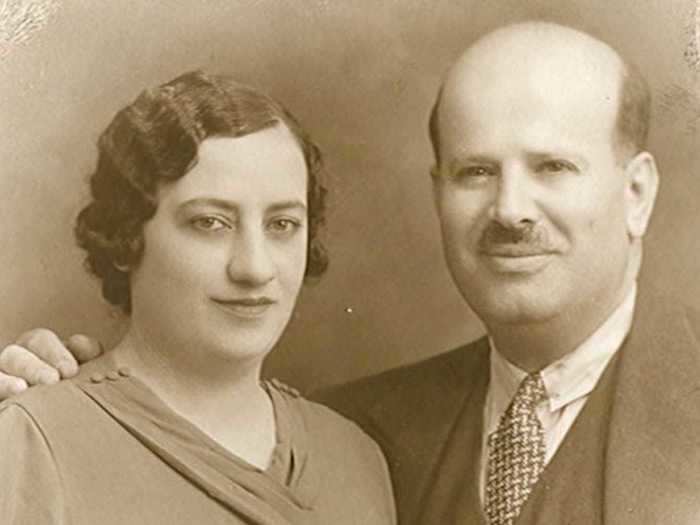
Source: Wealth-X
Slim holds a deep love for his country.
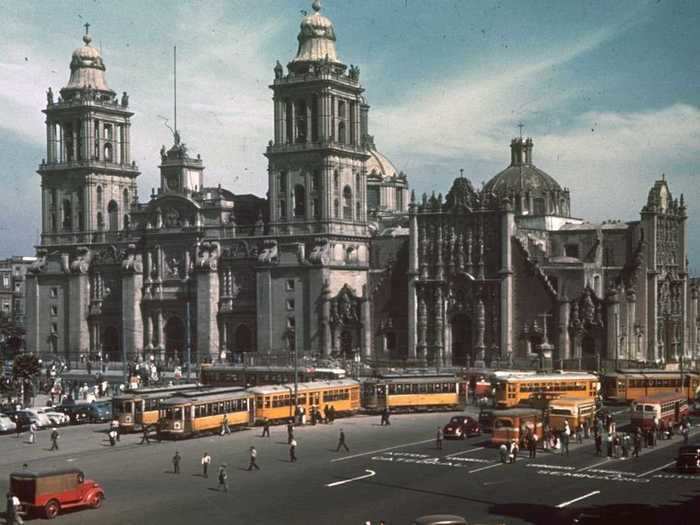
"Mexico is so rich in culture and history, and I have always enjoyed that," he told the Telegraph in 2011.
Slim went to college at Universidad Nacional Autonoma de Mexico, or UNAM, Mexico's National Autonomous University, studying civil engineering and graduating in 1961.

Soon after, he founded his first company, Inversora Bursatil, an insurance company.
Though Slim is known best as the chief shareholder of America Movil and the founder of the Grupo Carso conglomerate, his riches also result from many other business ventures.

Slim spent much of the '60s, '70s, and '80s building a diverse portfolio that now dominates the Mexican economy.
Slim has a clear strategy for making money: He acquires struggling companies and transforms them into multibillion-dollar holdings before selling his stake at a profit.

In particular, he took advantage of the Mexican debt crisis in 1982 in order to purchase many deflated companies.
We saw Slim's strategy firsthand in the US in 2009, when he loaned $250 million to The New York Times at a 14% interest rate.

Slim saw the deal as a business venture, rather than a foray into journalism.
But Slim announced in 2017 that he would sell almost half his New York Times shares by 2020.
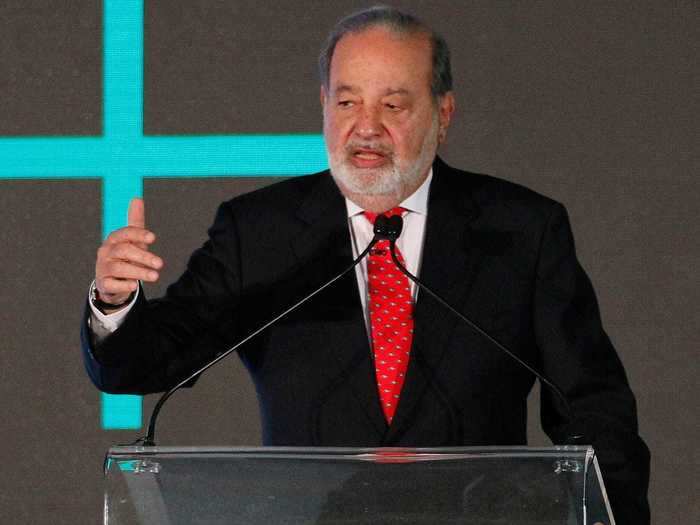
In 2018 alone, he sold at least $86 million worth of his shares.
Slim first entered the international spotlight in 1991 when he appeared on Forbes' billionaires list with a net worth of $1.7 billion.
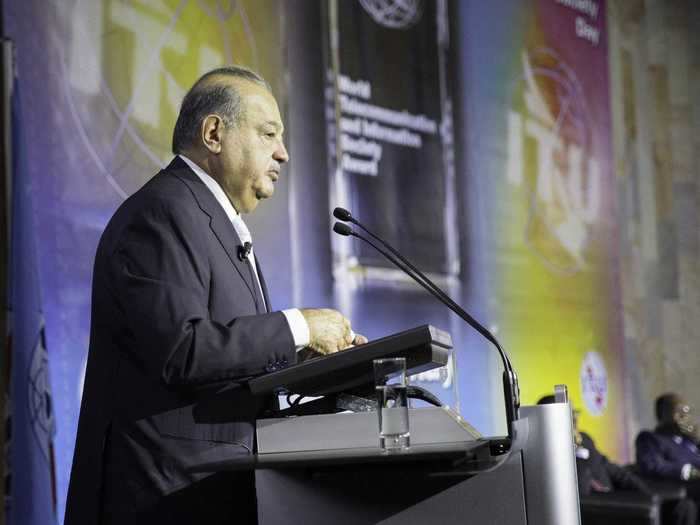
The previous year, he saw his first big success when Grupo Carso went public and led the privatization of state phone company Telmex, per Forbes.
In 2010, Slim surpassed Bill Gates as the richest man in the world; it was the first time in 16 years that the world's richest man wasn't from the US.

Though Gates is once again richer than Slim and Jeff Bezos reigns as the world's richest person, Slim is the wealthiest person in Mexico by far.
The next-richest person in Mexico is Sara Mota de Larrea, whose $11.1 billion fortune stems from her position as the biggest shareholder in Grupo Mexico, a publicly traded conglomerate founded by her late husband that has a lucrative mining division.
Slim's presence is all over Mexico.
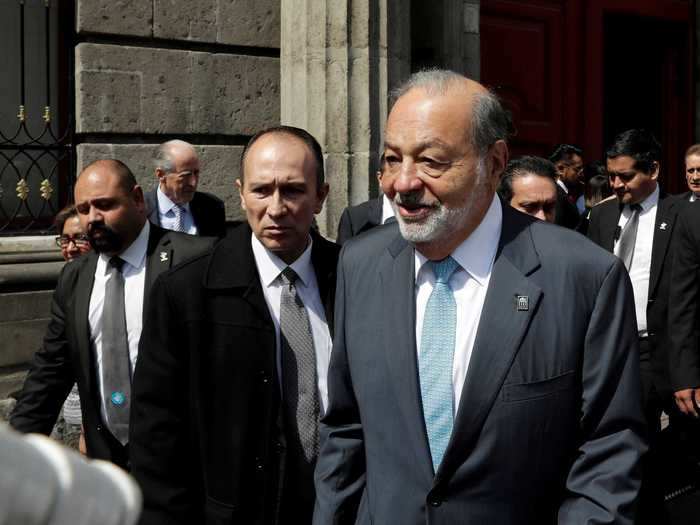
As The Guardian reported in 2017, "It is sometimes hard to tell where Carlos Slim stops and Mexico City starts."
"He controls most of the mobile phone, landline and internet markets," Feike De Jong wrote in the Guardian.
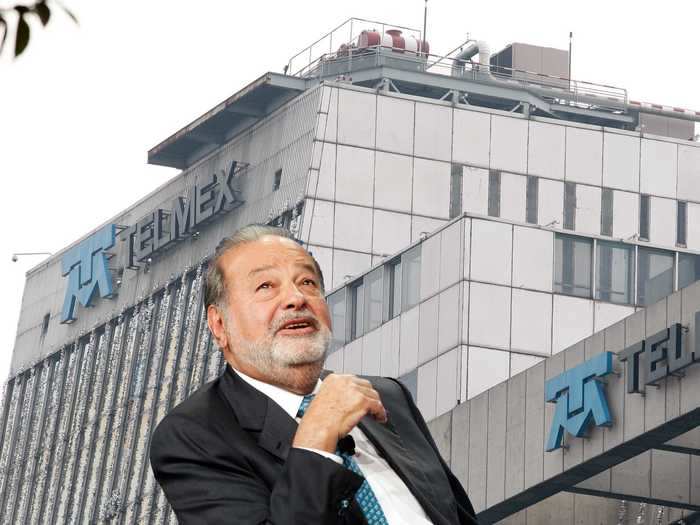
"His telecoms company, Telmex, installed the city's surveillance cameras," De Jong continued. "Grupo Carso, his flagship infrastructure conglomerate, runs the city's principal water treatment plant. His bank, Inbursa, is Mexico's."
The Mexican billionaire also owns Sears Mexico.
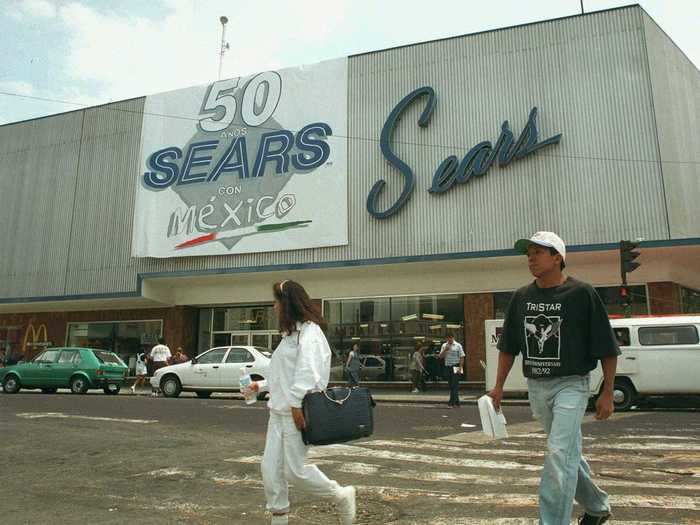
His company paid $103 million for a 60% stake in the company in 1997.
As Sears stores shuttered in the US following the company declaring bankruptcy in 2018, Sears has been thriving in Mexico, growing in both locations and sales.

Source: Business Insider
Slim's critics accuse him of being a monopolist whose practices drive prices and unemployment through the roof.
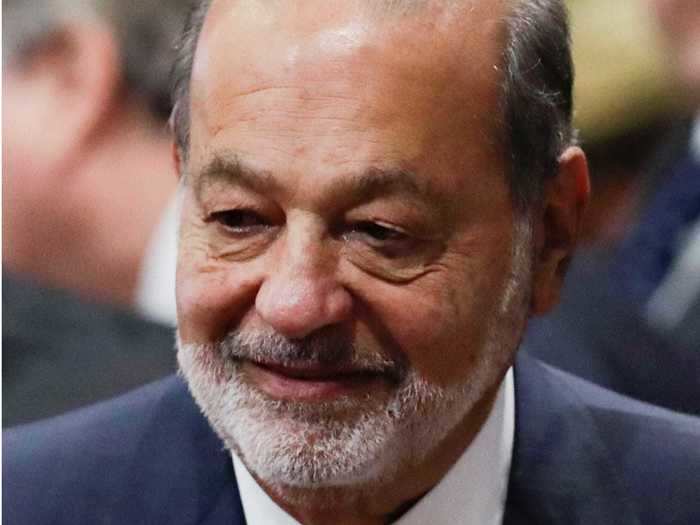
But the billionaire doesn't let criticism bother him: "When you live for others' opinions, you are dead," he said. "I don't want to live thinking about how I'll be remembered."
In fact, Slim has no need to cater to public opinion.
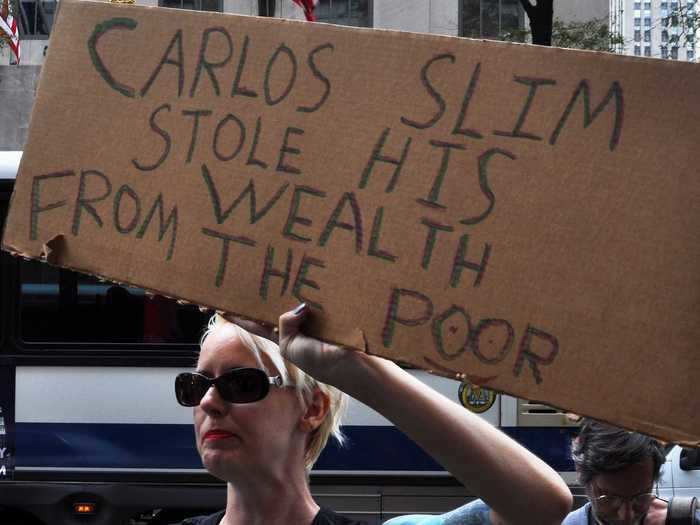
His wealth has granted him political influence to the extent that, for the most part, the Mexican government turns a blind eye to the dominance he has over the telecom industry.
Despite his critics, Slim states that since becoming a billionaire, he has "more activity, more responsibility, and more compromise …"
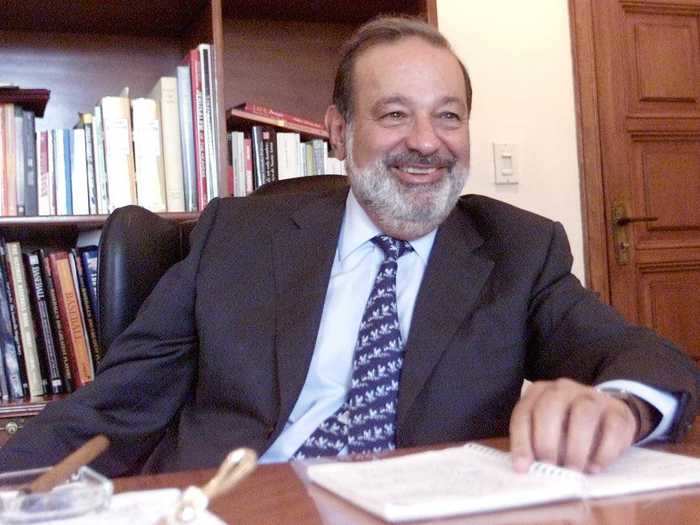
"The compromise is the challenge of solving Mexico's problems," he told Forbes in 2012. "I'm trying to make our country better in the areas that I can."
Slim says one of his biggest goals is alleviating poverty, and that it needs to happen at the institutional level.
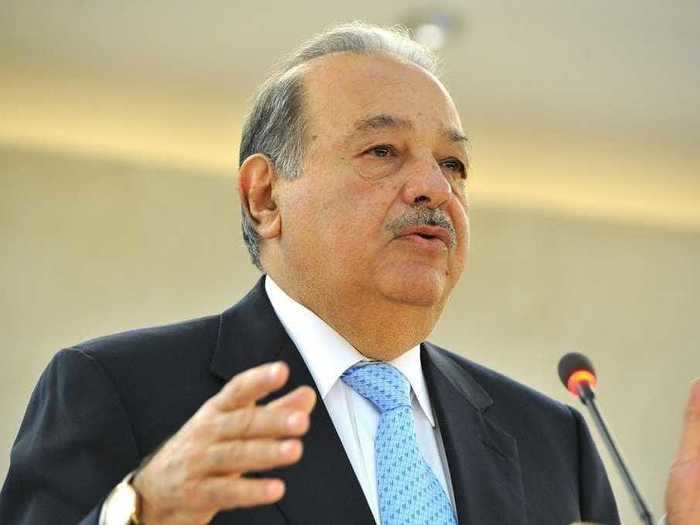
"Poverty isn't solved with donations," he told Forbes in 2012. "The establishment of business is more beneficial to society than going around like Santa Claus."
Despite his wealth, Slim does not believe in conspicuous consumption — he reportedly doesn't own any yachts or planes.

Most of his money goes towards further investments in business or philanthropy, though he does reportedly have a set of hand-carved and blown Baccarat wine glasses that were owned by the previous president of Mexico.
Slim has lived in the same six-bedroom house for 40 years and indulges in only two big luxuries: Cuban cigars and art collecting.
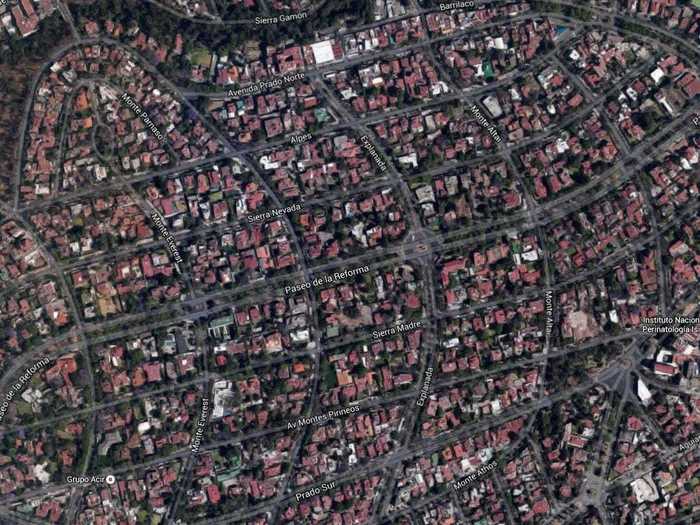
Tim Padgett, who interviewed Slim for Time magazine, said, "Just by looking at him, you would never know he is a billionaire."
Slim's home, his childhood home, and the Telmex offices are all located in Lomas de Chapultepec, a small but affluent neighborhood in Mexico City's financial district.
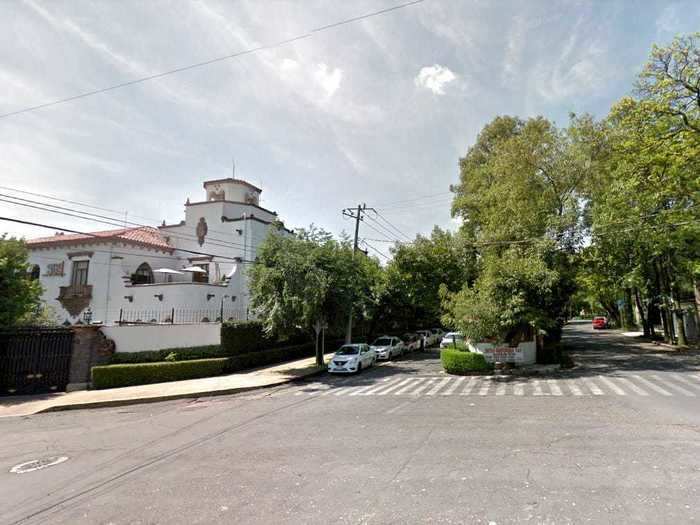
Source: Wealth-X, The Telegraph, American Journalism Review
Slim purchased a mansion on Fifth Avenue in New York City for $44 million in 2010 as an investment, not a residence.
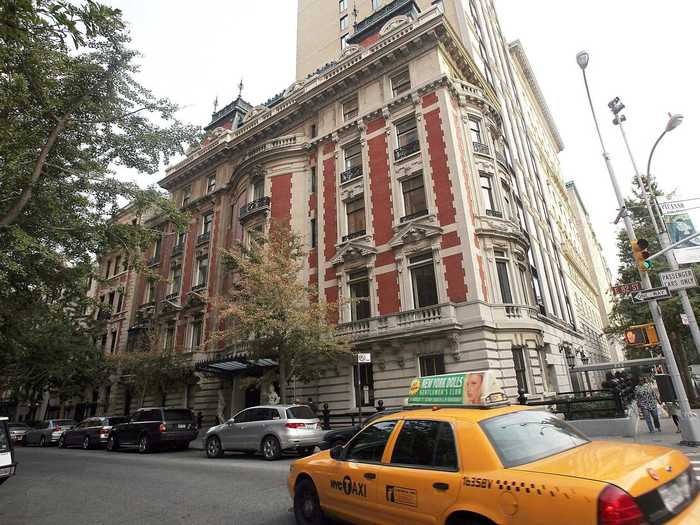
Source: Business Insider, Bloomberg, Curbed
In 2015, the mansion was put on the market for $80 million, $36 million more than what he paid for it.
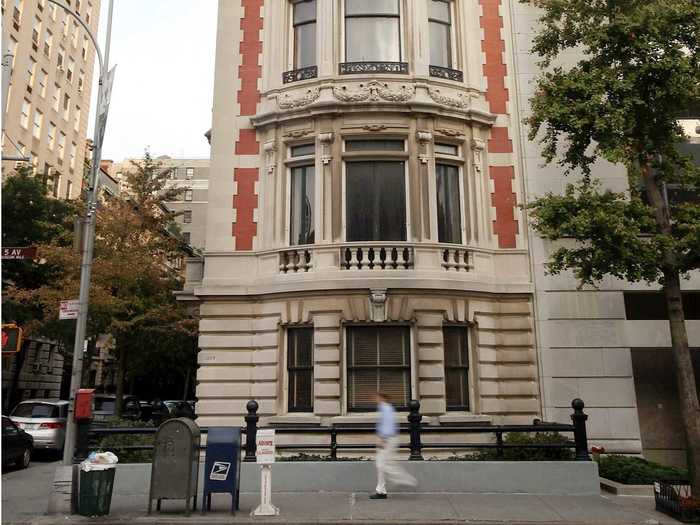
But in 2016, it was taken off the market with no sale recorded.
Slim was married to his wife, Soumaya, for 32 years.
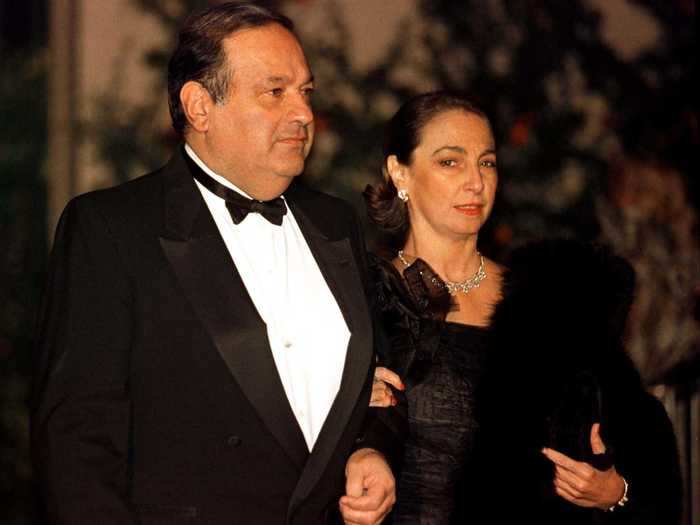
She passed away in 1999 due to renal failure. The couple has six children, who will inherit Slim's empire.
In 1994, Slim opened the Museo Soumaya, a nonprofit art museum with free admission in Mexico City named after his late wife, Soumaya.

At one point, it housed the largest private Rodin collection in the world.
After his wife's death, rumors circulated of Slim's subsequent romances, most famously with Queen Noor al-Hussein of Jordan.

Both Soumaya and Queen Noor's husband, King Hussein, passed away within one day of one another in 1999. Ten years later, newspaper outlets reported that Slim and the Queen of Jordan had formed a close relationship that included jet-setting around the globe and dining in secret at friends' houses.
Since 2004, Slim has stepped down from the boards of his three largest companies in order to focus on family, philanthropy, and his own health.

Every Monday he has dinner with his children and their spouses to discuss business, and every Wednesday he has lunch with his grandchildren, he said in a 2012 Forbes interview.
Slim still maintains ultimate control of his companies, but he has handed over much of the responsibility and decision-making to his three sons, Carlos, Marco Antonio, and Patrick, and to his son-in-law, Arturo Elías Ayub.
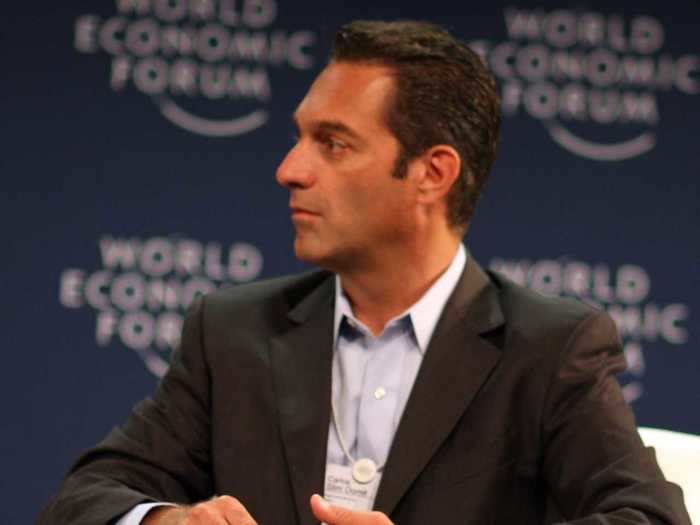
Two of his grandchildren also sit on boards of his companies.
Slim's daughter, Johanna, is a shareholder of his company, Grupo Carso.
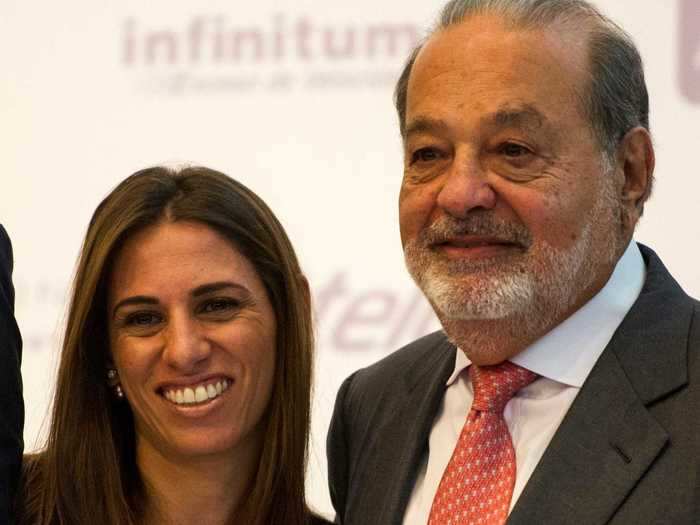
Johanna and Slim's other daughters, Vanessa and Soumaya, are involved in the Slim family's philanthropic endeavors as well as the arts.
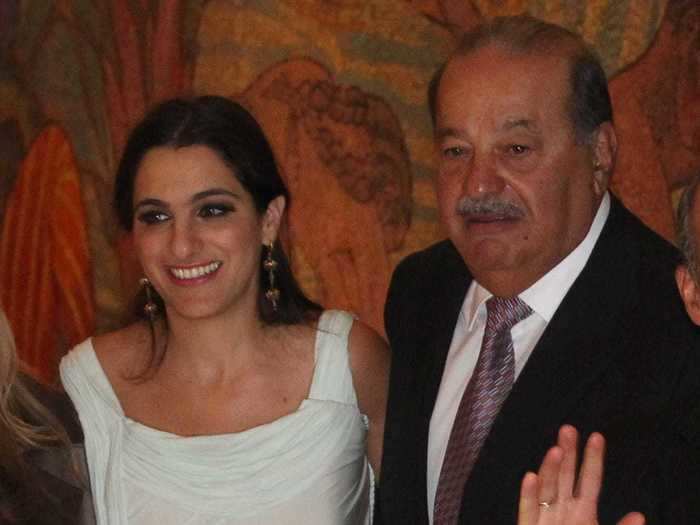
Source: Forbes
Slim has said publicly that a succession plan for his company has been made, but he has not given details.
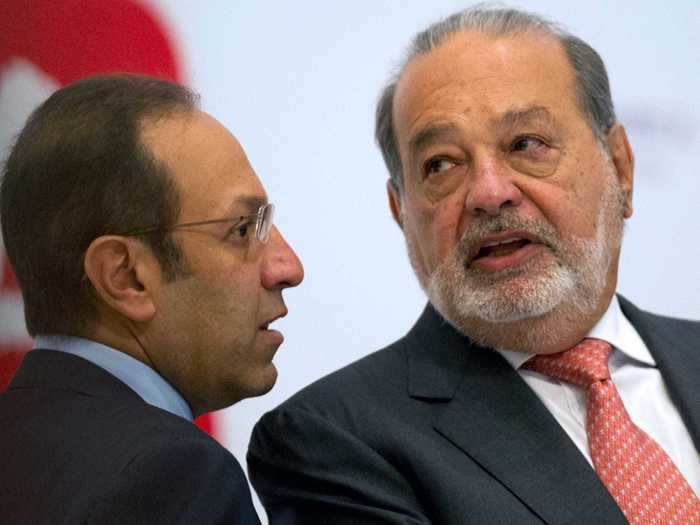
Source: Forbes
READ MORE ARTICLES ON
Popular Right Now
Popular Keywords
Advertisement
